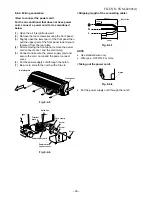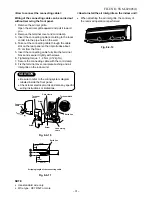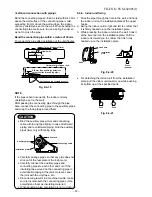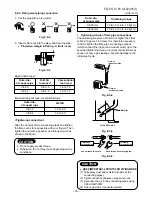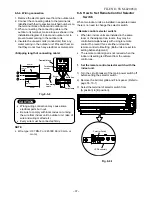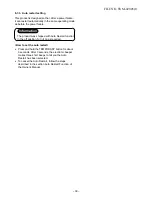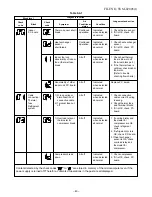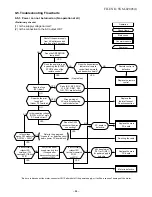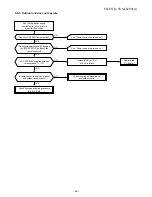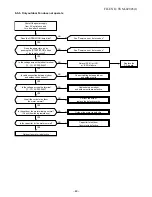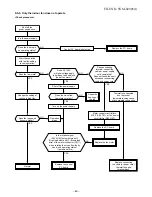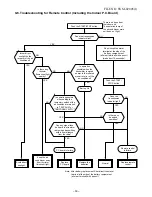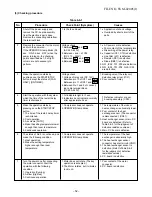
– 43 –
FILE NO. SVM-02005(1)
Table 9-4-1
Block level
Diagnosis function
Check
code
Block
Check
code
Symptom
Air
Conditioner
status
Condition
Indoor
P.C. board
Cable
connection/
Thermal
fuse
Refrigerant
system
Thermo. sensor short/
break.
Heat exchanger
sensor
short/break.
Indoor fan lock,
abnormality of indoor
fan or thermal fuse
break.
Abnormality of other
indoor unit P.C. board.
1) Wrong wiring or
disconnection of
connective cable.
2) Terminal fuse cut
off.
1) Overload relay or
thermostat for
compressor break.
Compressor break
down.
Continued
operation.
Continued
operation.
All off
All off
All off
All off
All off
Indicated
when detected
abnormal
Indicated
when detected
abnormal
Indicated
when detected
abnormal
Indicated
when detected
abnormal
Indicated
when detected
abnormal
Indicated
when detected
abnormal
Indicated
when detected
abnormal
1. Check thermo sensor.
2. If it is OK, check P.C.
board.
1. Check heat exchanger
sensor.
2. If it is OK, check P.C.
board.
1. Check heat thermal
fuse is blow or not?
(Terminal block part.)
2. If the thermal fuse is
not blow, check indoor
fan motor.
(Refer to trouble
shooting flow charts.)
Replace P.C. borad.
1. Check connective
cable correct if wiring
is wrong.
2. Check thermal fuse
and Terminal blocks.
3. If it is OK, check P.C.
board.
1. If overload relay and
themostat for
compressor are OK,
check refrigerant
cycle.
2. If refrigerant cycle is
OK, check P.C. board.
3. If heat exchanger
sensor is OK, check
overload relay and
themostat for
compressor.
1. Check compressor.
2. If it is OK, check P.C.
board.
Judgement and action
Content detected by the check codes “
” to “
” are stored in memory of the microcomputer even if the
power supply is turned off. Therefore, contents of operations in the past are all displayed.


